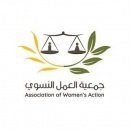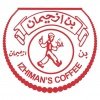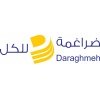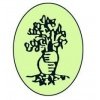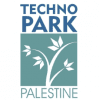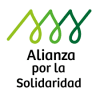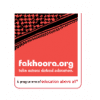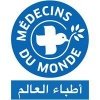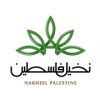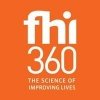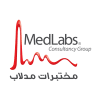Research Study: Women’s Engagement in Nontraditional Work
Terms of Reference
Individual Consultancy Services - Researcher
Background:
Association of Women’s Action for Training and Rehabilitation (AOWA) is a development organization established in 1994 by a group of active women from the Women Action Federation to activate the role of Palestinian women and develop their capacities so as to transform stereotypes regarding the roles of women in Palestinian society. The association works to encourage women to go out into the public space so as to access decision-making positions. The association leads 6 cooperative groups, 3 of which are agricultural. The cooperatives are distributed geographically between the Hebron and Jenin Governorates, as well as leading active groups in the provinces of Tubas and Jericho. Professional and organizational administrative training in operating and managing the group is accompanied by awareness raising measures regarding human rights and social issues and international agreements such as the Convention on the Elimination of All Forms of Discrimination (CEDAW). During the years 2018-2019, an incubator comprising the majority of the 6 cooperative groups of the association was established in order to support and encourage entrepreneurial ideas, especially for women's groups, and to transform them into existing cooperative production projects whereby women will contribute to building the national economy, without whose participation full development cannot be achieved.
One of the major areas that represent gender disparities in terms of access to opportunity in Palestine is employment and economic dependency. There are very limited work opportunities, limited participation in the labour force, high unemployment rates and increasing poverty among the Palestinian society, especially among women. These factors have a disproportionate impact on women and strongly affect the power dynamics both within the family and society at large.
Increased childcare and household duties can further limit women’s access to employment, entrepreneurship and income-generating opportunities. This would also have compound impacts on single-parent families, female headed households, low-income families, the self-employed, the precariously employed, or those without employment health rights or benefits – who may not be able to access childcare or afford to take time off of work. In turn, further increase in childcare, including support to children’s distant learning, persons with disabilities, and other household responsibilities, can put an extra strain on women’s economic participation in all productive sectors, as women working from home, employers, job seekers, and employees.
Under the project “Breaking Discriminatory Norms to Promote Women’s Inclusion in the Economic Sector”, which is implemented during the period August 2020 – August 2022, in partnership with the Palestinian Working Woman Society for Development (PWWSD) and Education for Employment – Palestine (EFE), a number of interventions are designed to contribute to engaging the community, government, and corporate levels across Palestine to promote the value of women’s work and equal and collective sharing of unpaid care and household work, as well as encourage women to enter all different occupations and have access to decent jobs and eliminate horizontal and vertical occupational segregation. The project will contribute to breaking discriminatory norms and stereotypes about women and men’s responsibilities concerning unpaid care and household work.
Partner organizations are working jointly to support Palestinian women, especially those affected by COVID-19, by challenging harmful societal norms related to women’s work inside and outside the household, where women are expected to take on the entirety of household labour even in cases where they also work outside the home. Accordingly, the project partners will work on contributing to transforming social attitudes and promoting shared household responsibilities and encouraging women to enter all different occupations, provided that jobs are decent and eliminate horizontal and vertical occupational segregation. This will be done through different innovative and youth-led approaches and initiatives, including utilization of media, awareness, advocacy and policy dialogue interventions, while ensuring engaging communities, employers and policy makers.
Under the framework of the project, AOWA, in close coordination with PWWSD and EFE, are seeking the services of an experienced individual consultant to conduct a field research study from a gender perspective and developing a monitoring tool for workspaces in the West Bank, including East Jerusalem, and the Gaza Strip. The research will include documenting violations of women’s rights at work, especially in non-traditional/male dominated occupations and sectors, collecting data and information, interviewing employers, workers and experienced specialists in the field, and develop recommendations for mobilization and advocacy interventions based on results..
The field research will focus on:
Measuring and documenting the opinions of male and female respondents about the value of women’s care work and decent work, and the importance of their inclusion in the work force with a focus on non-traditional/male dominated sectors and occupations.
Identifying women champions in non-traditional occupations, especially in the Information and communications technology 1) (ICT) for agricultural engineering, 2) Information and transportation services sector, and 3) non-traditional industries.
The results of the research will be the base for:
Reflecting the emerging needs of women during and post COVID-19, taking into consideration, especially in the abovementioned non-traditional/male dominated sectors, that the prevailing economic situation has and will continue to be affected, with emerging challenges and opportunities for women.
Community mobilization and advocacy interventions to lobby for government institutions, NGOs, political parties, labour unions and women centered trade unions accountability towards women’s inclusive participation and leadership in the economy.
A technical committee for the research will be established by project partner organizations to ensure collective contribution.
This project is implemented within the framework of the regional 4-year joint programme (JP) “Promoting Productive Employment and Decent Work For Women” in Palestine, Jordan and Egypt” that is implemented jointly by UN Women and ILO, financed by Swedish International Development Cooperation Agency (Sida). The JP aims to promote productive employment and decent work for women in Palestine by promoting equitable laws and policies, engaging public, private and community actors, and reducing the uneven burden of unpaid care and domestic work.
Scope of Work
The researcher will undertake the following tasks:
Inception Phase:
Develop a Research Plan: Desk review, define research areas (North: Jenin, Nablus and Tubas, middle: Ramallah and Jericho, south: Hebron, Gaza: Rafah, Gaza City, and Khan Younis), including a problem statement, objectives, importance, reference framework, timeframe and methodology
The research would need to focus on women in non-traditional/male dominated occupations and sectors including:
Women’s participation in Information and Communication Technology for Agricultural Engineering (Jenin, Jericho and Tubas)
Information and Transportation services sector; i.e. bus drivers, ambulances, trailers, (Ramallah and Nablus)
Non-traditional industries, such as mechanical engineering (cars or in industries), carpeting, (Hebron), and maintenance (i.e. air conditioning).
B. Collect data using qualitative methods:
Conduct in-depth interviews with men and women and community leaders with a total of 54 interviews (6 in each governorate)
Conduct four focus group sessions; at least 12 participants each. The first two with women rights holders each in the West Bank and Gaza Strip; and the second two with key institutions and actors/duty bearers each in Gaza (NGOs, employers, political factions, vocational training centers), and the West Bank (government institutions, NGOs, political parties, employers, labor unions and women centered trade unions, and the Palestinian General Federation of Trade Unions (PGFTU).
Undertake data analysis.
C. Report Writing Phase:
Produce conclusions and recommendations and draft research.
Present the draft research to AOWA and partners for review and feedback.
Incorporate feedback and submit revised version to AOWA by 15 January 2020.
D. Presentation of Research:
Present the main research results in a research launch event (to be organized in February 2021). It is expected that the final research study will be submitted to AOWA in Arabic and English languages.
The Consultant is expected to:
Submit an inception report by 10 November 2020;
Maintain an open and frequent communication and follow up with AOWA on progress;
Submit key deliverables including research study in a timely manner under the terms of the contract;
Submit the research study in both English and Arabic;
Present the results of the research study and the video graphic during a launch event that will be organized by AOWA and Partner Organizations during February 2021.
Consultancy duration
The maximum duration for the consultancy services is 3-months from signing date of the consultancy contract.
Required Qualifications
More than 10 years of experience in academia and research, preferably in Palestine.
At least 10 years of proven professional experience in women’s empowerment, economic empowerment and gender equality in the research field.
Very strong understanding of national and international policy and legal frameworks on gender equality, women's rights, and women’s access to economic and productive resources, including understanding of social, cultural, and political context of Palestine.
Proven experience in applying human rights-based-approach (HRBA) in researches (samples will be requested).
Fluency in Arabic and English (speaking and writing) are required.
How to Apply
Interested individuals are required to prepare and submit the following:
A Technical proposal including context (brief), approach, methodology, and work plan including the proposed timeframe.
CVs of the research team.
Financial offer: budget breakdown of the proposed costs in ILS including VAT and all administrative costs.
Interested individual are requested to send the above package to [email protected], with the subject line: “Research Study: Women’s Engagement in Nontraditional Work” at deadline Monday, 5 November 2020





